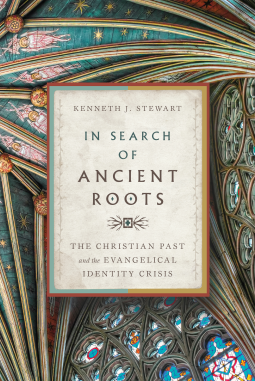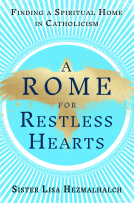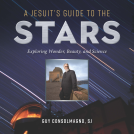
In Search of Ancient Roots
The Christian Past and the Evangelical Identity Crisis
by Kenneth J. Stewart
This title was previously available on NetGalley and is now archived.
Send NetGalley books directly to your Kindle or Kindle app
1
To read on a Kindle or Kindle app, please add kindle@netgalley.com as an approved email address to receive files in your Amazon account. Click here for step-by-step instructions.
2
Also find your Kindle email address within your Amazon account, and enter it here.
Pub Date Oct 28 2017 | Archive Date Dec 13 2017
InterVarsity Press | IVP Academic
Description
Protestant evangelicalism is in crisis.
Today it is increasingly difficult for Protestants to identify what counts as distinctively Protestant, much less what counts as evangelical. As evangelicals increasingly lose contact with the churches and traditions descending from the Reformation, and as relations with Roman Catholicism continue to thaw, it becomes harder to explain why one should remain committed to the Reformation in the face of perceived deficits and theological challenges with the Protestant tradition.
A common complaint about Protestant evangelicalism is its apparent disconnect from ancient Christianity. The antiquity and catholicity of Roman Catholicism and Eastern Orthodoxy seem to outshine the relative novelty of the Reformation. Some evangelical churches appear to be uninterested in the ancient historical roots of their faith as well as being liturgically and doctrinally unstable. Many within evangelicalism seem to have accepted at face value the suggestion that the evangelical faith is no more than a threadbare descendant of ancient Christianity. The result is that a number of younger Protestants in recent years have abandoned evangelicalism, turning instead to practices and traditions that appear more rooted in the early church.
In Search of Ancient Roots examines this phenomenon and places it within a wider historical context. Ken Stewart argues that the evangelical tradition in fact has a much healthier track record of interacting with Christian antiquity than it is usually given credit for. He surveys five centuries of Protestant engagement with the ancient church, showing that Christians belonging to the evangelical churches of the Reformation have consistently seen their faith as connected to early Christianity. Stewart explores areas of positive engagement, such as the Lord's Supper and biblical interpretation, as well as areas that raise concerns, such as monasticism.
In Search of Ancient Roots shows that evangelicals need not view their tradition as impoverished or lacking deep roots in the tradition. Christian antiquity is the heritage of all orthodox Christians, and evangelicals have the resources in their history to claim their place at the ecumenical table.
Advance Praise
"If evangelicalism is to have a coherent future, it needs to understand not only its own past but also the past of the church catholic. In this collection of essays, Ken Stewart brings his typical combination of insight, conviction, charity, and catholicity to bear on evangelicalism's relationship to history. You do not have to agree with all of his conclusions to agree with his basic thesis—we need history—and to be challenged by the range of interlocutors he chooses—from the ancient church fathers to Cardinal Newman and beyond. This collection should provide professors and pastors with much food for thought."
- Carl R. Trueman, Westminster Theological Seminary
"This remarkable book seeks to trace the deep roots and determine the DNA of evangelical Protestantism. Using his considerable and profound knowledge of a vast terrain, Dr. Ken Stewart digs deep to show that evangelicalism is firmly rooted in Scripture, the early church, and historical Christianity. His archaeology of doctrine and liturgy argues against the recent loss of confidence and self-identity of evangelical Protestants who may be tempted to seek more 'stable' pastures or to wander with historical amnesia into cul-de-sacs. Instead, evangelical Protestants are urged to share the confidence of their Protestant-era forebears who knew their ancient pedigree and stood on sturdy ground. This is an important and timely book."
- Robert M. Solomon, bishop emeritus, The Methodist Church in Singapore
"Ken Stewart's In Search of Ancient Roots is a panoply of well-argued, well-documented, and well-written chapters centering on evangelicalism's engagement with its own pre-Reformation past. He provides a compelling case not only for the deep roots of evangelical movements throughout history but also for evangelicalism's attention to its historical Christian roots as the norm rather than the exception. Stewart also provides exceptional discussions on important practical matters facing evangelicals as they begin to engage with church history—matters like the frequency of the Lord's Supper, the apostolicity of infant baptism, the interpretation of Scripture, and justification by faith. In the process, Stewart also takes on many of the exaggerated claims made by evangelical converts to Roman Catholicism and Eastern Orthodoxy regarding the historical priority of those ancient traditions. Any evangelical should read this book before abandoning the orthodox, Protestant, evangelical faith for traditions that claim to be more authentically connected to Christianity's ancient roots. In all of these cases, Stewart's work becomes a conversation-starter rather than a conversation-ender. He is refreshingly irenic and candid. I enthusiastically recommend this book to anybody interested in the Christian past and evangelical identity as well as those who need to reflect deeply on the vital questions Stewart raises for today."
- Michael J. Svigel, chair and professor of theological studies, Dallas Theological Seminary, author of RetroChristianity
"'To be deep in history,' said John Henry Newman, 'is to cease to be a Protestant.' But Ken Stewart begs to differ. In this learned and eminently readable volume, Stewart conducts a constructive assessment of the evangelical identity crisis currently facing the church. His informative and evocative reflection upon the ecclesial drama argues persuasively that instead of a wilting cousin of the 'Great Tradition,' evangelical movements are poised to flourish by extending their roots into the soil of pre-Reformation Christianity—that is, providing they do so with integrity. In Search of Ancient Roots provides such insight, enabling readers to give a clear answer for their evangelical hope."
- Chris Castaldo, senior pastor, New Covenant Church, Naperville, Illinois, author of Talking with Catholics About the Gospel
"Present-day evangelicalism has a strange relationship with history. On the one extreme, there are those who endorse a 'gap theory' whereby their experience of the Christian life has little if anything to do with any sense of historical continuity. On the other extreme, recent fascinations with romantic and selective appropriations of 'tradition' show how easy it is to uncritically embrace beliefs and practices that are idiosyncratic with regards to Scripture. What is at stake is the historical nature of evangelicalism as such. As a learned historian and acute theologian, Kenneth Stewart helps the reader come to terms with the diachronic dimension of evangelicalism that runs through church history, taking different shades and colors but ultimately responding to the same principles of biblical faithfulness and spiritual involvement. This book is a vigorous and rigorous rebuttal to John Henry Newman, according to whom 'to be deep in history is to cease to be Protestant.' Stewart is convinced that to be deep in history one does not need to turn to Rome (becoming Roman Catholic) or to Antioch (becoming Orthodox). His case is convincing. A must-read for every person struggling with the question, 'What does evangelicalism have to do with history?'"
- Leonardo De Chirico, pastor, Breccia di Roma, lecturer in historical theology, Istituto di Formazione Evangelica e Documentazione, Padova, Italy, director of Refomanda Initiative
"This book shakes us free from naive and romantic notions that Roman Catholicism and Eastern Orthodoxy are the best expressions of early Christianity. For evangelicals attracted by that fantasy, it is an urgent wake-up call to examine the full facts and rediscover the deep historic roots and spiritual riches of their own tradition."
- Andrew Atherstone, Latimer Research Fellow, Wycliffe Hall, University of Oxford
Available Editions
| EDITION | Hardcover |
| ISBN | 9780830851720 |
| PRICE | $30.00 (USD) |
| PAGES | 304 |
Featured Reviews
 Bronwyn D, Reviewer
Bronwyn D, Reviewer
As an Evangelical who has felt the pull of Roman Catholicism, particular the spiritual disciplines and monastic tradition, I found this book a fascinating read. It is the first time I have come across an argument from the Evangelical side, exploring our deep connection to the ancient church tradition. I found it refreshing. While I don’t agree with everything Kenneth Stewart contends, he addresses a broad range of interconnecting issues in a thorough and challenging way. I particularly enjoyed the chapters exploring Monasticism, the Apocrypha and Baptism.
A second book in a discussion / debate format between Kenneth Stewart and a Catholic or Orthodox believer would make for interesting reading.
It is not often that I feel a shift in my views after reading a book, but this book is one which has altered my perception of Evangelicalism and given me a new confidence in my own tradition. In saying this, I would hope that eventually we can stop asking who is right and who is wrong, and that all Christian traditions can move closer towards celebrating a shared history.
 Alex P, Reviewer
Alex P, Reviewer
There is an undercurrent in the church today that is hard to identify. It's a restlessness that causes people to leave congregations full of their friends for something perhaps they're not still fully sure of. This book rides the ebb and flow of that undercurrent through the ages and right up to the front door of our neighborhood church.
As someone who has felt the restlessness, I identify with the richness of Stewart's pursuit. Protestantism is a movement which severed itself from the historic Church, and the resultant crisis of identity plays out in many ways. What Stewart offers is not condemnation, never taking a side between Protestant and Catholic. Indeed, the notes he plays are somehow in harmony with the movement of the Holy Spirit far more than any religious establishment.
There is a need to reunify the church. Stewart addresses the complexities of doing that, but in the end, I'm left with a notion of greater value: the thread that binds the church of the ages together is the Spirit which moves us to restlessness, and seeing how that Spirit has moved in our forebears through the ages is of critical importance. It's a call to embrace the history of the Church as one Church, and it gives all believers permission to claim that history as their own.
Christ prayed in the garden that his followers would be one. While there are doctrines which splinter spiritual families apart, there is still a common savior. Perhaps if we start to understand our common history, we can make greater strides to allowing that history to bring us closer together as one Body. For that purpose, this book is indispensable.
The premise of this book is what grabbed me. I am an Evangelical who received virtually no teaching about ancient Christian traditions or church history as a child. It was as if "poof" the Reformation happened and our church traditions began. I didn't expect it to be so exhaustive in its explanation that evangelicals and reformers were there within the church walls all along. It makes a strong argument for teaching church history in our churches, all of them.







